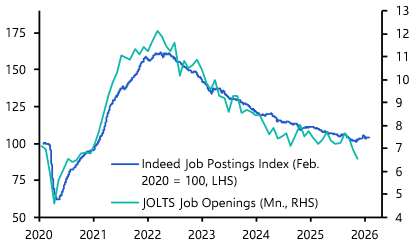Victory for Jair Bolsonaro in last weekend’s presidential election in Brazil has once again led to questions about the links between rising populism and economic growth.
This is becoming well-trodden ground, which we’ve written about lots in the past. Mr Bolsonaro follows in the wake of Rodrigo Duterte in the Philippines, Victor Orbán and Jarosław Kaczyński/Andrzej Duda in Hungary and Poland, Matteo Salvini in Italy and, of course, Donald Trump in the US. What’s more, echoes of Mr Bolsonaro’s brand of strongman politics can also be found in China, Russia and even India. Taken together, these countries account for more than 50% of global GDP.
“Populism” has evolved into a catch-all term that often obscures important differences in the policies pursued in each of these countries. But despite this, it’s possible to identify common threads that run through the agenda of each government. On a political level, populism rejects liberal democracy and, to varying extents, global capitalism. Accordingly, policy tends to be rooted in an economic nationalism that is typically hostile to immigration, trade and the foreign ownership of domestic assets.
All of this has fed the view that the rising tide of populism must inevitably be negative for economic growth. However, the reality is more complicated. Most governments that tend to get grouped under the populist banner also have a proclivity for fiscal stimulus. And, as I argued last week, in the right circumstances, this can actually boost economic activity. Indeed, it’s striking that GDP growth in Hungary, Poland, the Philippines and the US accelerated in the two years that followed the election of populist leaders. (See Chart 1.) The evidence would therefore seem to endorse the economic policies of their populist leaders.
Chart 1: Real GDP (Average, % y/y)

However, the lessons from other countries may not apply in the case of Brazil. The acceleration in growth shown in Chart 1 occurred because the expansionary effects of looser fiscal policy were not offset by a tightening in financial conditions. Bond yields stayed low, in part because global interest rates were low but also because, in the short-term at least, government balance sheets could withstand the effects of looser policy.
But Brazil is in a very different position. Its public finances are in terrible state, so much so that, despite his populist leanings, Mr. Bolsonaro actually campaigned on a platform of fiscal rectitude. Of course, it’s possible that fiscal tightening in Brazil could feed a virtuous cycle of lower bond yields, rising private investment and faster economic growth. However, fiscal sustainability requires Mr. Bolsonaro to steer pension reform through a fragmented Congress – and because populist leaders tend to be politically polarising, they often struggle to pass legislation that requires bipartisan support (witness President Trump’s failure on healthcare). It’s still early days, but my sense is that the market optimism around Mr. Bolsonaro’s fiscal agenda will ultimately be punctured by political realities.
More fundamentally, while the short-term effect of populism has been to push up growth in several countries, the effects over the longer term are likely to be more pernicious. The centralisation of power under a strongman leader can undermine judicial independence and weaken property rights, particularly in countries where institutions are comparatively weak to start with. At the same time, overseas investment may be deterred by a more hostile stance towards foreign capital. Both of these factors will, in time, tend to depress investment and thus lower productivity growth. Meanwhile, fiscal support today has to be paid for tomorrow – and policy loosening in the US has come at the expense of mounting concerns over the long-run fiscal position.
So what should we make of all this? I think it’s fair to say that, unless a country is facing acute challenges, the election of a populist government is unlikely to trigger an immediate economic collapse and the short-term risks are often overstated – indeed, in most cases growth is likely to accelerate initially as the purse strings are loosened. However, the effects over the longer term are likely to be far more malign. Accordingly, while the early evidence may seem to support the case made by populist leaders, history is likely to form a different view.
In case you missed it:
(Requires login)
- Our UK team have pushed up their forecasts for GDP growth and interest rates following last week’s budget. Read more here.
- Our Markets Economist, Oliver Jones, takes a look at EM equity valuations and whether they point to a period of outperformance.
- Our US Economist, Andrew Hunter, assesses the potential fiscal implications of this week’s Midterm elections.



